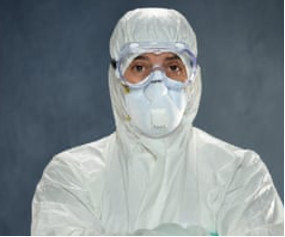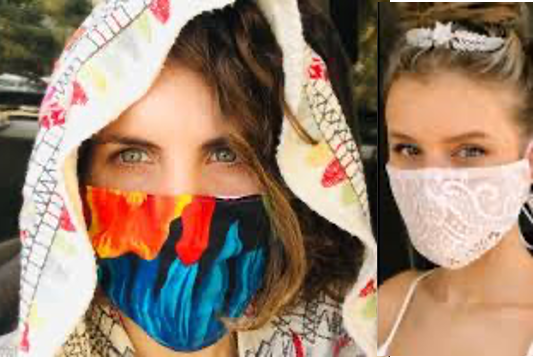
Our paper on orthostatic tachycardia (fast heart rate when you stand up) after covid-19 is now #OpenAccess in @bmj_latest. Summary 🧵 1/
#longcovid @AnaBelenEspino2 @HarshaMaster3 @RogersNat70
bmj.com/content/380/bm…
#longcovid @AnaBelenEspino2 @HarshaMaster3 @RogersNat70
bmj.com/content/380/bm…
We found that fast heart rate on standing was common and sometimes very disabling in people whose recovery from covid-19 was prolonged. 2/
'Orthostatic tachycardia' means the heart rate goes up (sometimes very dramatically) on standing up, but the blood pressure doesn't drop (the latter is another condition called orthostatic hypotension). 3/
So if someone is getting dizziness or palpitations on standing, they need an in-person examination to confirm that the HR is ⬆️⬆️ when they go from lying to standing, and make sure their BP isn't ⬇️. Paper explains how to do this. 4/
When your heart races, you feel a rush of adrenaline, especially if it's going so fast you think you might pass out. So people with orthostatic tachycardia can sometimes come across as "anxious". But this condition is NOT CAUSED BY ANXIETY. 5/
Doctors, if you dismiss someone with orthostatic tachycardia as "just anxious" without taking a full clinical history and properly examining them, you may be part of the problem. We've heard some awful stories. Please: read the paper for advice on what tests to do. 6/
Not everyone with tachycardia after covid-19 needs extensively investigating. But everyone deserves to have their story heard and documented, and to have a baseline examination. 7/
Covid-19 may affect the microvasculature, causing inflammatory, thrombotic changes. This means you need to keep the red flags in the back of your mind. For example, have you confidently excluded a pulmonary embolus (these are RARE but they can occur). 8/
Orthostatic tachycardia may be due to dysfunction of the autonomic nervous system (it's over-reacting to the change in posture). 'Dysautonomia' covers a wide range of dysfunctions and can be mild or severe. (Personally I find it an unhelpful, jargon term in this context) 9/
[dysautonomia cont'd]
But whether you like the term or not, the key TL;DR learning point is that IF a patient presents with tachycardia on standing, you should be alert to other odd symptoms/signs which may be a manifestation of autonomic dysfunction. 10/
But whether you like the term or not, the key TL;DR learning point is that IF a patient presents with tachycardia on standing, you should be alert to other odd symptoms/signs which may be a manifestation of autonomic dysfunction. 10/
Patients with tachycardia after covid-19 may also get fatigue, voice and swallowing problems, bloating and other troubles that can be traced to organs that are innervated by the autonomic nervous system. 11/
We don't talk much about those other manifestations in the paper. But we do present 3 case studies of patients who presented with a confusing array of symptoms which initially defied a diagnosis. Once more: this condition is FREQUENTLY MISSED because it presents STRANGELY. 12/
Note that as with other manifestations of long covid, orthostatic tachycardia may be INTERMITTENT. Patients have good days & bad days. In some, the symptoms have particular triggers; after a bad attack they may feel rotten for days. This does not mean they're imagining it! 13/
There's no magic cure for orthostatic tachycardia, nor are there currently any licensed drugs. But the generalist (GP, rehab doc, allied professional) can do a LOT to help these patients. 14/
First, listen to the story, ask specific questions about pattern and triggers. Exclude or pursue red flags. Examine the patient. 15/
Explain to the patient what is likely happening. Racing heart is a lot less scary if you understand that your autonomic nervous system is just having an 'on day'. If you've excluded structural heart damage, explain this. I'd want that reassurance if I had this condition. 16/
Second, be humble: just because you didn't document a rise in pulse of 30 bpm in a standard test in your clinic doesn't mean there's nothing wrong with the patient. Because it's intermittent, it can be hard to nail (like an arrhythmia). 16/
Third, symptomatic and supportive management can help hugely. Some of the advice is similar to what we'd give to patients with orthostatic hypotension (careful when/how you stand up, support hosiery, stay well hydrated etc). 17/
Fourth, if you are thinking of referring the patient, find out which local clinic has expertise with such cases. Some (tho not all) cardiologists are reluctant to see them; long covid clinics may or may not have an interest. 18/
The paper gives suggestions for medication that could be used if the patient does not respond to conservative measures. We suggest these drugs should be used on the advice of a cardiologist as they're off-label. 19/
Having said that, if you're confident supervising the patient on a low-dose beta blocker and there's no contra-indications, that could provide a quick win. 20/
Finally, the research literature on prevalence and natural history of this condition is a mess! Different denominator populations, different tests, different cut-offs. We are trying to sort that with new empirical studies. End. 21/
• • •
Missing some Tweet in this thread? You can try to
force a refresh







